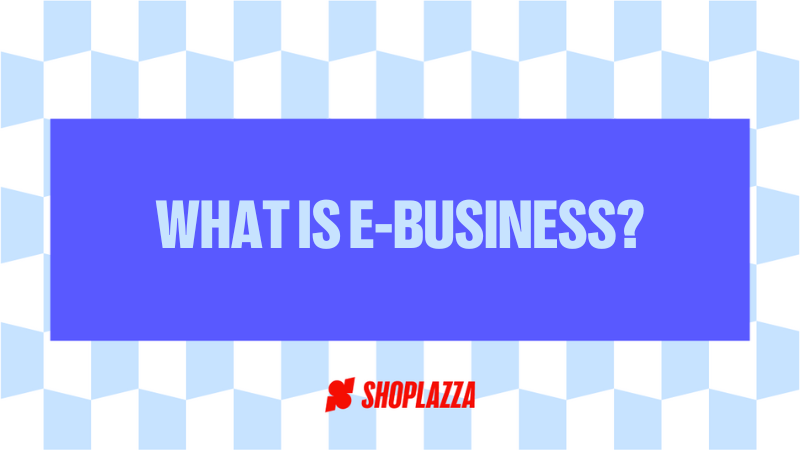In today’s digital age, e-business is becoming increasingly prevalent as more and more companies run their operations over the internet. Ok, great, but what is e-business? In this blog post, we’ll explore what it is, the types of e-business, and the pros and cons of this business model.
What is e-business?
E-business, also known as electronic business, refers to any type of business that is conducted over the internet or other electronic networks. This can include online shopping, online banking, e-learning, e-health and other online services.
Essentially, any business that uses the internet or other electronic networks to facilitate its operations can be considered an e-business.
Olive, for instance, is a Canada-based e-business that provides online medical and pharmaceutical services to patients. From consultations and prescription requests to customer service inquiries, all business processes take place on their website and in their mobile app.
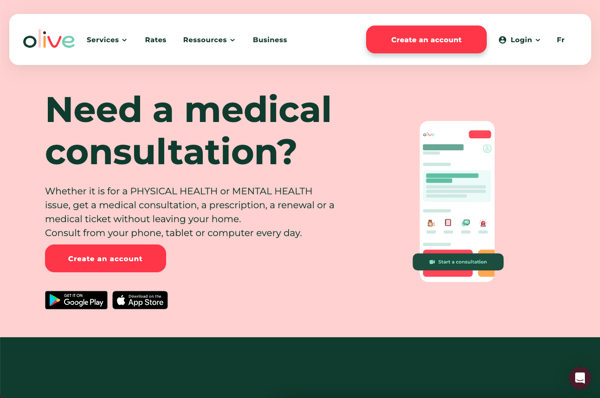
E-business vs. ecommerce: What’s the difference?
Ecommerce and e-business are two related concepts that are often used interchangeably, but there’s actually a difference between the two.
Ecommerce, or electronic commerce, refers specifically to the buying and selling of products and services over the internet, on an ecommerce website. (You’ve probably heard of it as an online store as well.) In fact, ecommerce is a subcategory of e-business that focuses on the online sales.
On the other hand, e-business, or electronic business, is a broader term that encompasses all types of business activities that are conducted online. This can include not only ecommerce but also things like online marketing, customer service, supply chain management, and more.
E-business is more than just buying and selling goods and services online. It’s also the use of online tools and technologies to manage business operations and interact with customers, suppliers, and partners. E-businesses may involve the use of various software systems and tools, such as enterprise resource planning (ERP) systems, customer relationship management (CRM) systems, and supply chain management (SCM) systems.
Types of e-business
There are several different types of e-business. You’ve possibly heard of them before, and many of them consist of ecommerce business models. Let’s have a closer look at each one of them.
Business-to-business (B2B) e-business
You’ll notice that the names are pretty straightforward. In the business-to-business model, for instance, we include all businesses selling products, services or software to other businesses over the internet.
Online marketplaces are a good example of the business-to-business model. When a company wants to sell on Amazon, for instance, Amazon is acting as a B2B online business by offering a platform for sellers to promote their products and reach their target audience.
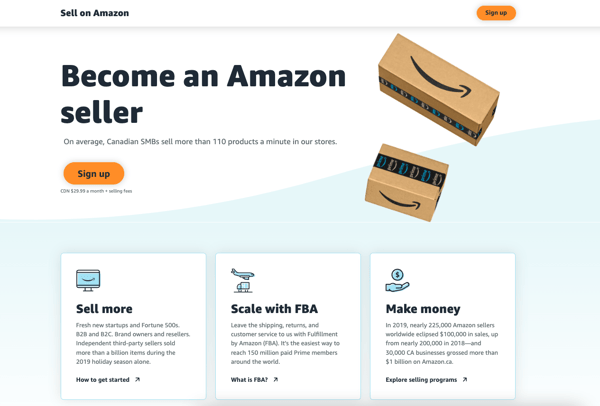
Business-to-consumer (B2C) e-business
This refers to businesses selling goods or services directly to consumers online. They’re the good ol’ traditional retailers but in a virtual setting. Everytime you, as a consumer, buy anything from an online store, you’re dealing with a B2C business.
Examples of B2C e-business models include online retailers, subscription services and online booking systems.
Amazon, which is the world’s largest online retailer, also sells products to consumers, which makes them a B2C company as well. The Body Shop is another B2C company that, unlike Amazon, operates both online and offline.

💡 Ever thought of starting an e-business to sell digital products online?
Consumer-to-consumer (C2C) e-business
This business model refers to individuals (people like you and me) selling goods or services to other individuals over the internet or other electronic networks. When you want to sell a second-hand car on Kijiji or eBay, for instance, you’re pretty much running a C2C e-business.
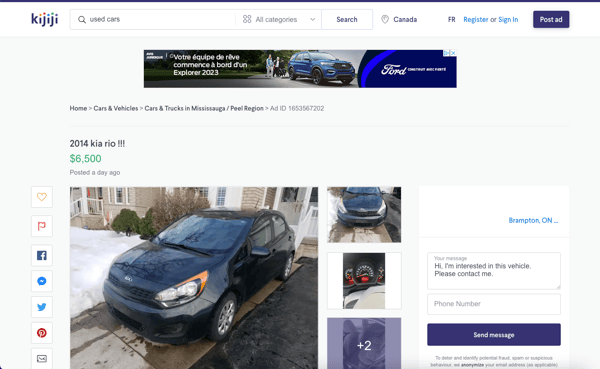
Consumer-to-business (C2B) e-business
This refers to individuals selling their own goods or services to businesses. When you’re looking to make money online as a freelance designer, for instance, you’re running a C2B business.
Mobile commerce (m-business)
This refers to any type of business that is conducted over mobile devices like smartphones and tablets. Examples of m-businesses include mobile banking and mobile shopping apps.
Remember Olive, the example we mentioned before? They can be considered an m-business because, while patients can sign up through the website, all consultations and communications happen on the Olive app.
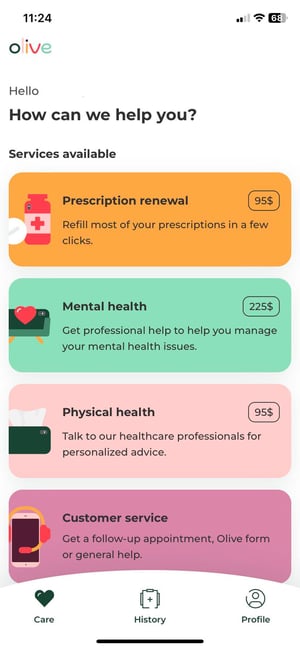
Pros and cons of an electronic commerce
Now that we’ve answered the question, “What is e-business?”, let’s delve into the benefits and the downsides of running an electronic business.
Pros
- Increased reach: E-business allows you to reach customers from all over the world, breaking down geographical barriers and opening up new markets.
- Reduced costs: Online advertising can be much cheaper and more targeted than traditional advertising methods like billboards and TV ads. E-business can also streamline supply chain management, allowing your business to track inventory, orders and shipments in real-time, which can help to keep a healthy profit margin and increase efficiency.
- Increased flexibility: E-business allows your business to be more flexible in terms of location, hours of operation and customer support, as many tasks can be conducted remotely and online.
- Better customer experience: E-business can provide customers with a more personalized and convenient shopping experience, as they can browse and purchase products or services from the comfort of their own homes, and access customer support 24/7.
📞 Step up your customer service game! Here are the customer service skills you should focus on with your support team.
Cons
- Security concerns: With the increasing frequency of data breaches and cyberattacks, online companies need to implement strong security measures to protect sensitive information like credit card numbers and personal data.
- Technical difficulties: E-business requires a certain level of technical proficiency and the need to stay up-to-date with rapidly changing technology and consumer trends.
- Lack of human interaction: E-business can make it challenging to establish a personal connection with customers, which can impact customer loyalty and repeat business. However, it’s worth mentioning that there are many, many ways you can go around this issue, from creating loyalty programs with the help of partners like Stamped and Lily to investing in user-generated content to build a sense of community.
- Shipping and handling challenges: E-business requires efficient and reliable shipping and handling processes to ensure that products are delivered to customers in a timely and cost-effective manner.
Electronic business: conclusion
In conclusion, e-business is a rapidly growing trend in today’s digital age, and it offers many advantages to businesses that embrace this model. However, it also brings its own challenges, and businesses need to carefully consider these factors when deciding whether to adopt an e-business model.
If your heart is set on having your own ecommerce store, you can check out how to start an online store. You can also try Shoplazza for free and see if running an e-business is the right choice for you.
